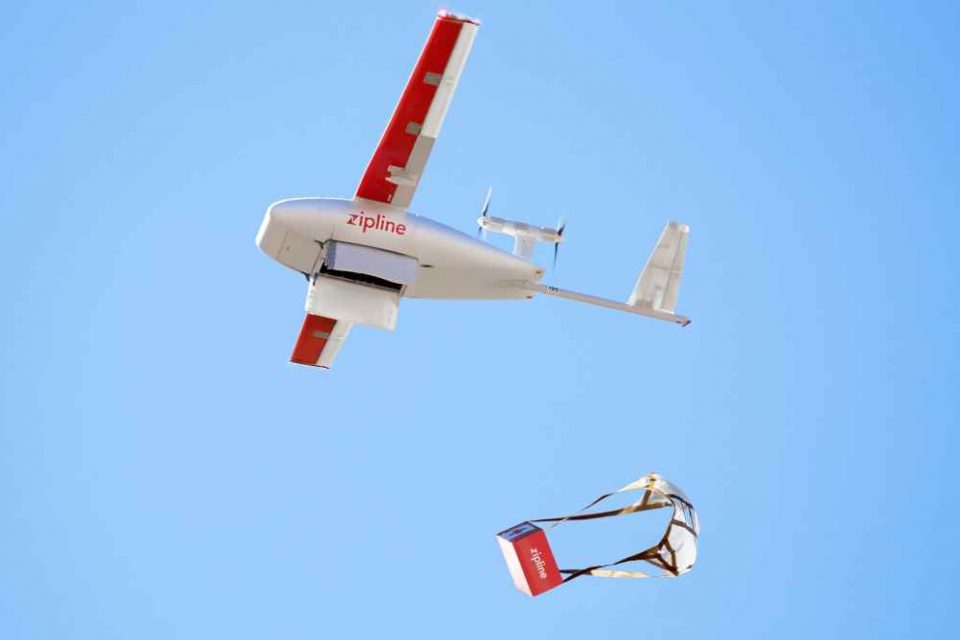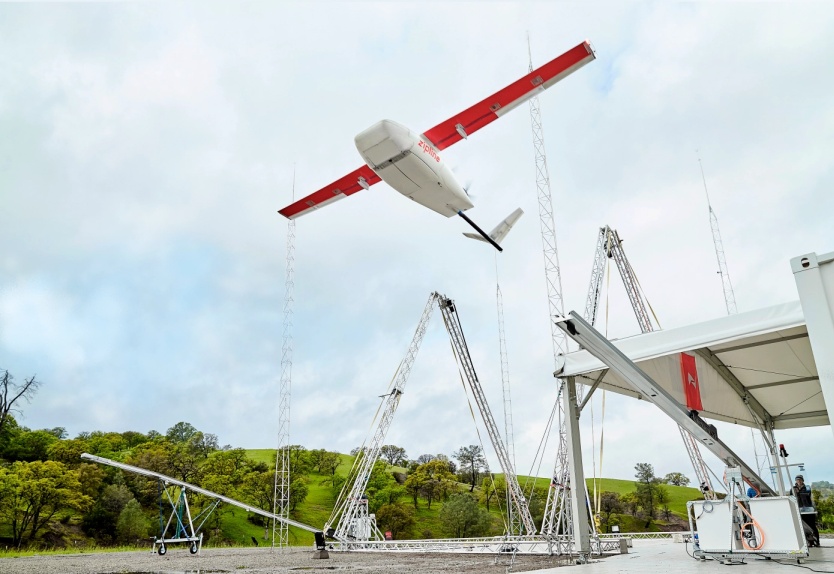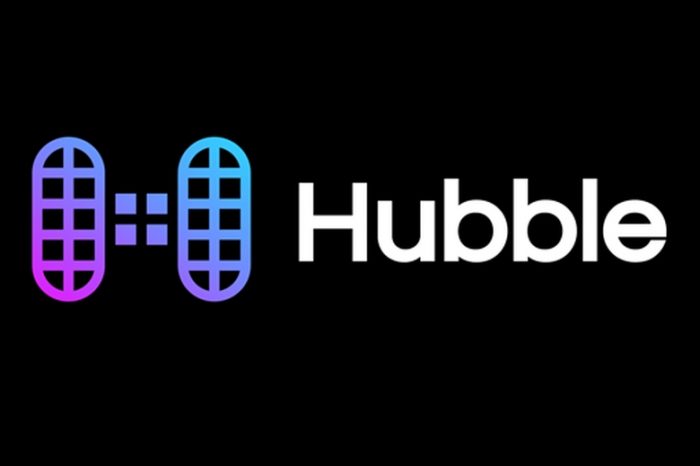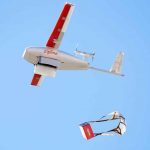Zipline is a tech startup using drones to deliver blood and life-saving vaccines to remote villages in Africa

As covid ravages around the world, rich nations were able to get access to the life-saving treatment immediately after the vaccines became available in early 2021. However, poor countries continued to suffer despite early promises by developed nations to promote global vaccines. The situation is even worse for people living in remote parts of the world. To address this problem, logistics startup Zipline is working with NGOs and pharmaceutical companies to vaccines to people in remote villages in Africa.
We first wrote about Zipline back in 2019 after the Half Moon Bay, California-based drone startup demonstrated its medical supply drones for the US military. Zipline first made a name for itself in Rwanda and Ghana, where the startup delivered blood, vaccines, life-saving medications, and other emergency medical supplies in remote villages using its autonomous electric drones. Today, Zipline has grown exponentially and expanded its autonomous aircraft delivery service to many other countries in Africa and around the world.
In August 2019, Zipline light unmanned aircraft made hundreds of supply drops during the Australian live-fire wargames. The Defense Innovation Unit (DIU) and the Naval Medical Research Center’s Naval Advanced Medical Development (NMRC-NAMD) also used Zipline’s autonomous drones to make more than 380 deliveries of blood and other medical supplies to troops amid a live-fire exercise with U.S., Australian, and other forces.
“The U.S. military is one of the largest providers of life-saving health care and critical aid in conflict, humanitarian and disaster relief scenarios around the world. Zipline is proud to partner with the Defense Department because our goal is to get people the care they need to stay healthy and alive no matter where they are in the world and no matter the circumstances,” says Zipline CEO Keller Rinaudo.
Just last November, Zipline partnered with Pfizer and BioNTech to the first mRNA covid-19 vaccines in Ghana. The startup completed the first long-range drone delivery of both authorized mRNA COVID-19 vaccines requiring ultra-cold-chain in Ghana. The collaboration allows for the distribution of approximately 50,000 doses of the Pfizer-BioNTech COVID-19 Vaccine in Ghana, pioneering a new model for vaccine distribution.
To date, Zipline has distributed more than 220,000 COVID-19 vaccine doses from multiple manufacturers, the first company to do so through an autonomous aircraft at the national scale. Zipline said it plans to distribute millions more as supply becomes available.
On January 20, Zipline announced in a Twitter post that it had partnered with the Government of Ghana and Gavi Vaccine Alliance to enable rapid, equitable, and cost-effective delivery of COVID-19 vaccines.
Zipline is proud to partner with the Government of Ghana and @gavi to enable rapid, equitable, and cost-effective #lastmiledelivery of COVID-19 vaccines. #covax #instantdelivery #dronesforgoodhttps://t.co/nHR0ceBKPB
— Zipline (@zipline) January 20, 2022
Meanwhile, Zipline not only serves remote villages in Africa, last year the company inked a deal with Walmart to launch an autonomous aircraft delivery service in Northwest Arkansas.

Founded in 2014 by Keenan Wyrobek, Keller Rinaudo, and Will Hetzler, the Half Moon Bay, California-based Zipline designs, manufactures and operates drones to deliver vital medical products to everyone, no matter where they live.
To date, Zipline has flown 18,083,320 miles, made 254,233 commercial deliveries, delivered 1,891,400 bottles of medicine, and served over 25 million customers. Zipline has built the world’s fastest and most reliable delivery drone, the world’s largest autonomous logistics network.
Since its inception eight years ago, Zipline has raised a total of $483 million in funding over 8 rounds. In June 2021, Zipline, raised $250 in Series E round at a $2.75B valuation to expand its logistics networks in Africa and the United States.
Below is a video of how Zipline helped Rwanda build a drone delivery service.




